The 7 best private search engines that respect user data
1. DuckDuckGo

What better way to start this list than with the default search engine for the Tor browser? US-based DuckDuckGo is a great choice for anyone who wants to ensure their privacy when searching the Internet.
DuckDuckGo does not sell any personal information because it never stores such information in the first place. If DuckDuckGo is asked by the government to hand over data, they will comply; however, because they do not store any information, the database is very sketchy.
2. Startpage

If you prefer a search engine more like Google, try Netherlands-based Startpage. It uses Google search results, which is great if you find DuckDuckGo's results a bit lacking. Startpage achieves this by paying Google in exchange for search results, then using them for its own service without collecting user information.
Startpage also pays close attention to search suggestions. Typically, search engines will suggest search terms as you type based on what other people are searching for. However, this requires search engines to collect personal information, which Startpage does not support.
Instead, Startpage matches your search to terms in the dictionary, on Wikipedia, or general phrases that contain search results. This allows Startpage to help you find what you're looking for without having to collect previous searches.
3. MetaGer
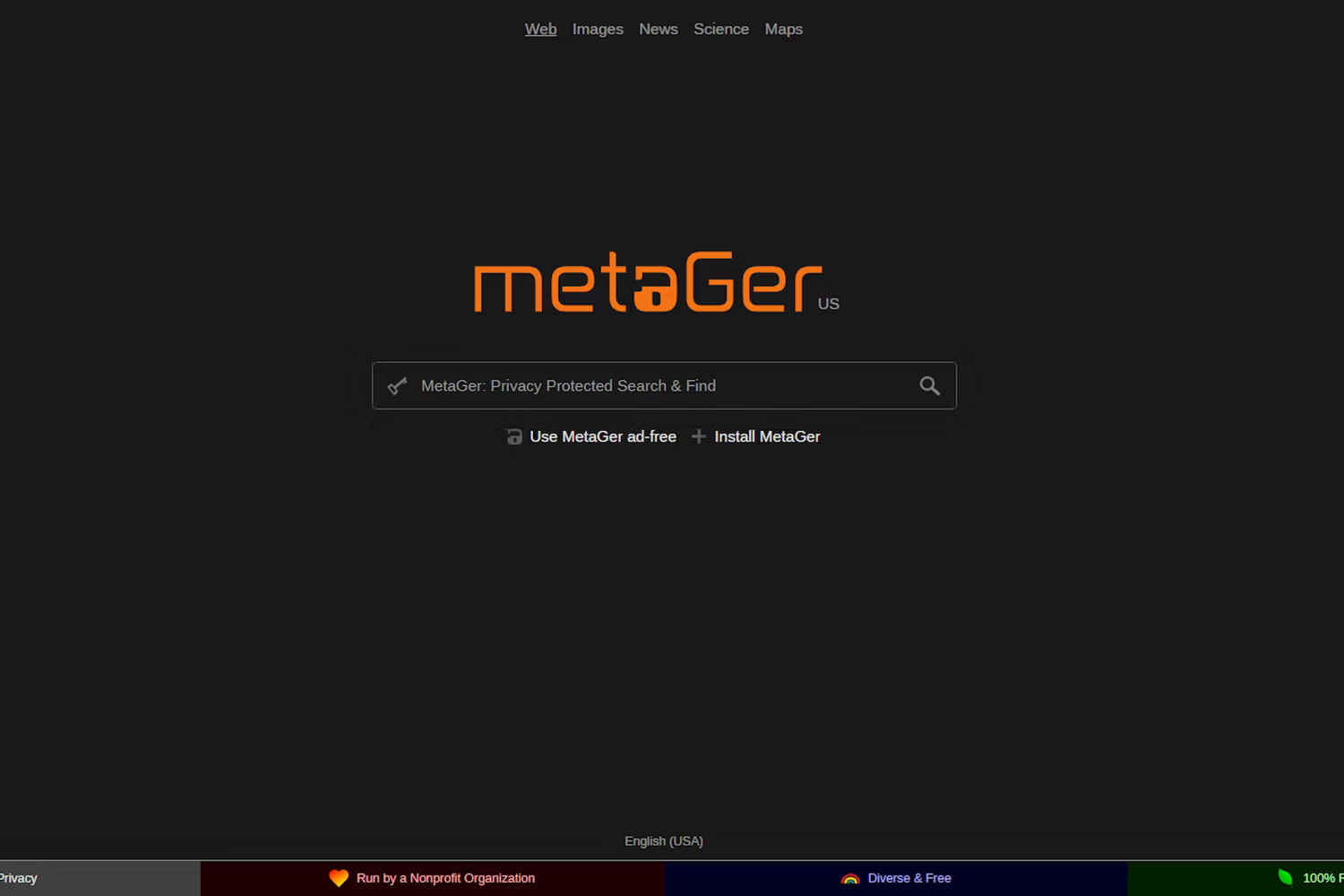
MetaGer is a privacy-focused search engine based in Germany. Like Startpage, MetaGer also uses proxy server technology to hide your location when you visit a website.
When searching for a term on MetaGer, you'll notice an additional option below each result called "Open Anonymously". When clicked, MetaGer will set up a proxy server and navigate the desired website through it. Because MetaGer is the source of the query, your visit remains anonymous.
4. Qwant
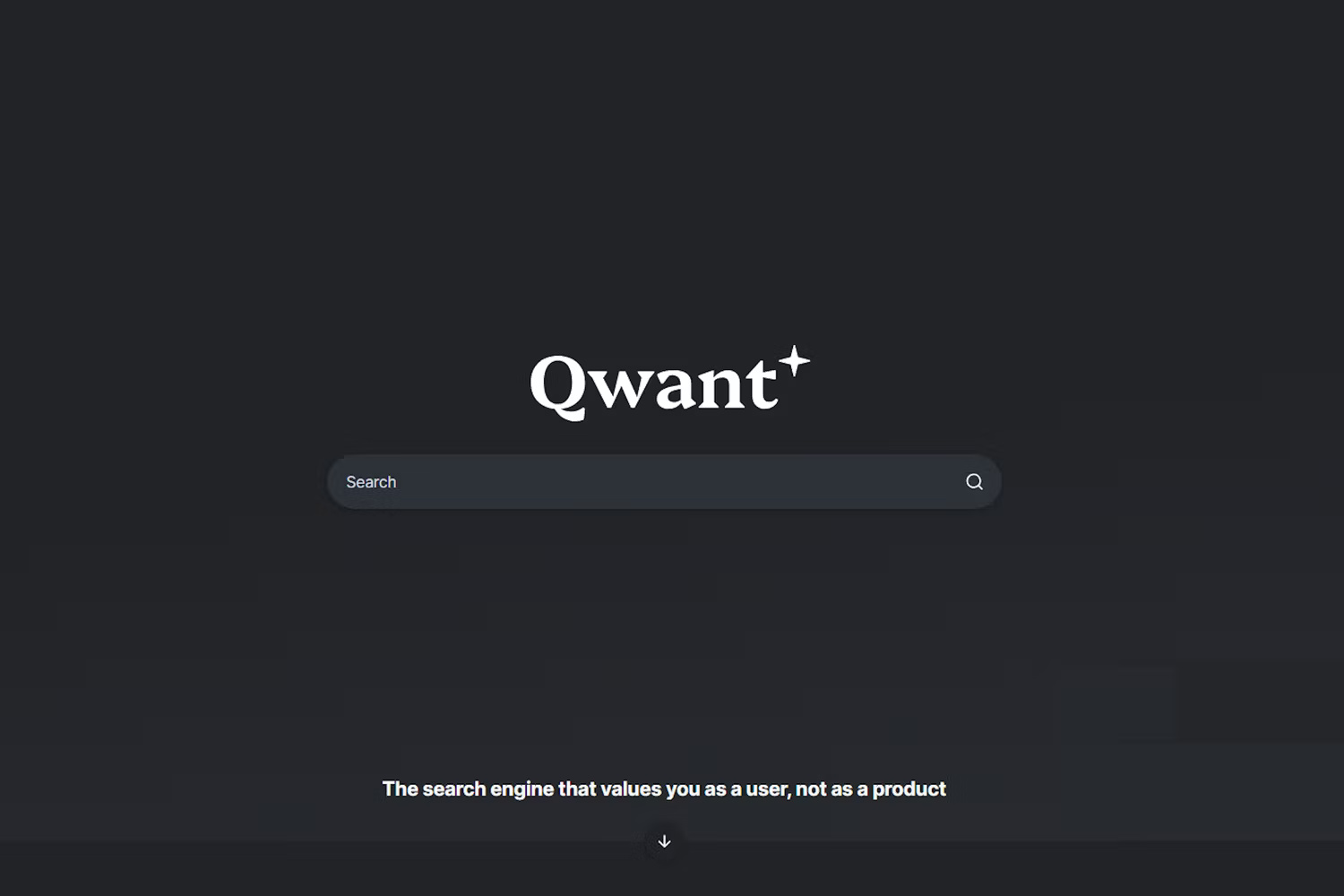
Qwant is a search engine based in France with full features. However, some of these features require the user's location or personal information. That means it's not the ideal choice for those who want maximum privacy.
Even so, if you want a search engine that does it all but doesn't store your search history then Qwant is the best free private search engine for you.
5. Mojeek
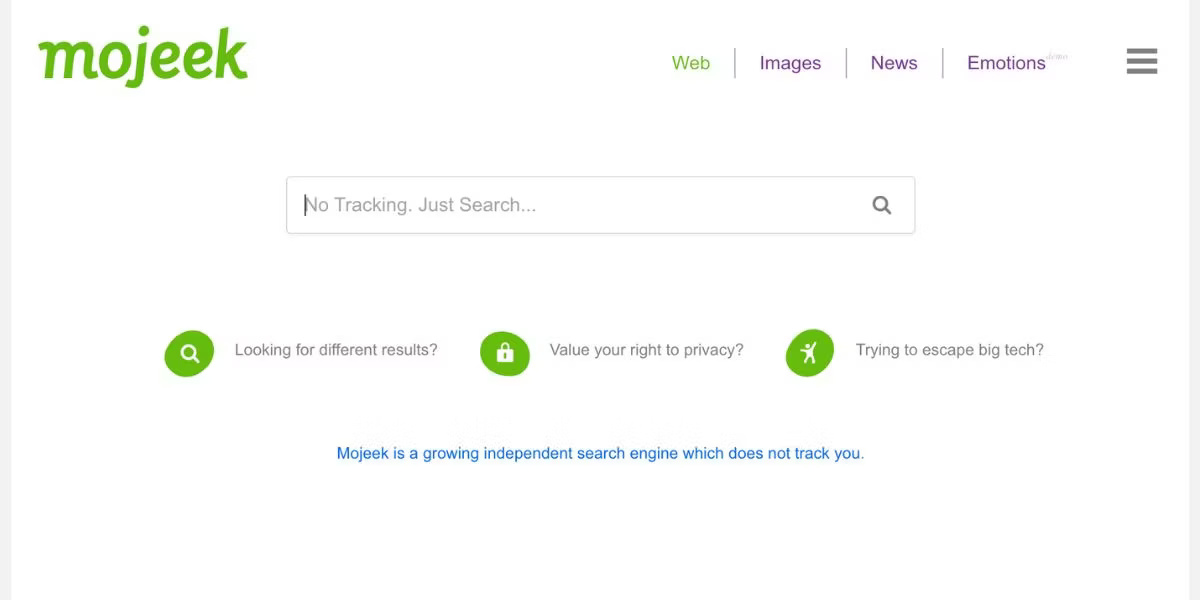
Some search engines rely on other, more powerful search engines to get results, but you may prefer a search engine that generates its own results.
This is what Mojeek, a UK-based search engine, does best. Instead of using someone else's search engine, Mojeek uses its own search engine to ensure that user privacy is respected. However, the search results you get won't be perfect.
Despite this, Mojeek is still the best private web search engine for getting results that are not influenced by a larger company. Mojeek itself calls its search results "independent and unbiased," which will resonate with people who don't want larger companies to dictate their web browsing experience.
6. Kagi
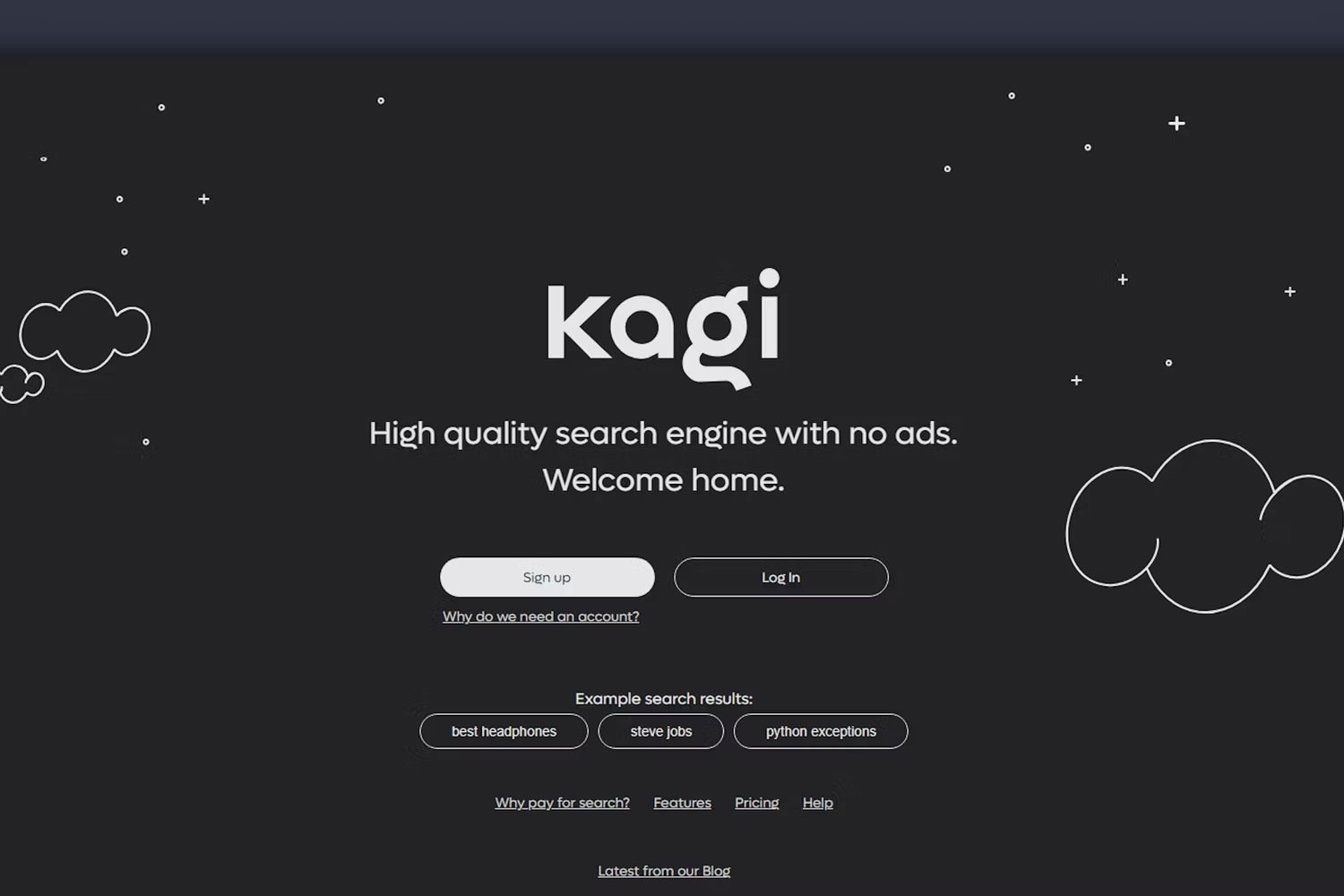
When looking at secure alternatives to Google, Kagi is an interesting use case. It gets to the heart of why companies collect data about you in the first place: Make a profit. Kagi solves this problem by removing all ads and data collection, thereby ensuring their business model does not rely on collecting user information to maintain operations.
This begs the question: If Kagi doesn't monetize user data, how does it work? Luckily, this service is very straightforward about how it makes money. To use Kagi, an account must be created to unlock 100 free searches. After that, you can pay $5 a month for 300 searches or $10 for unlimited. It may seem odd to pay a search engine, but it means Kagi doesn't need to do what other engines are doing to survive.
7. Swisscows
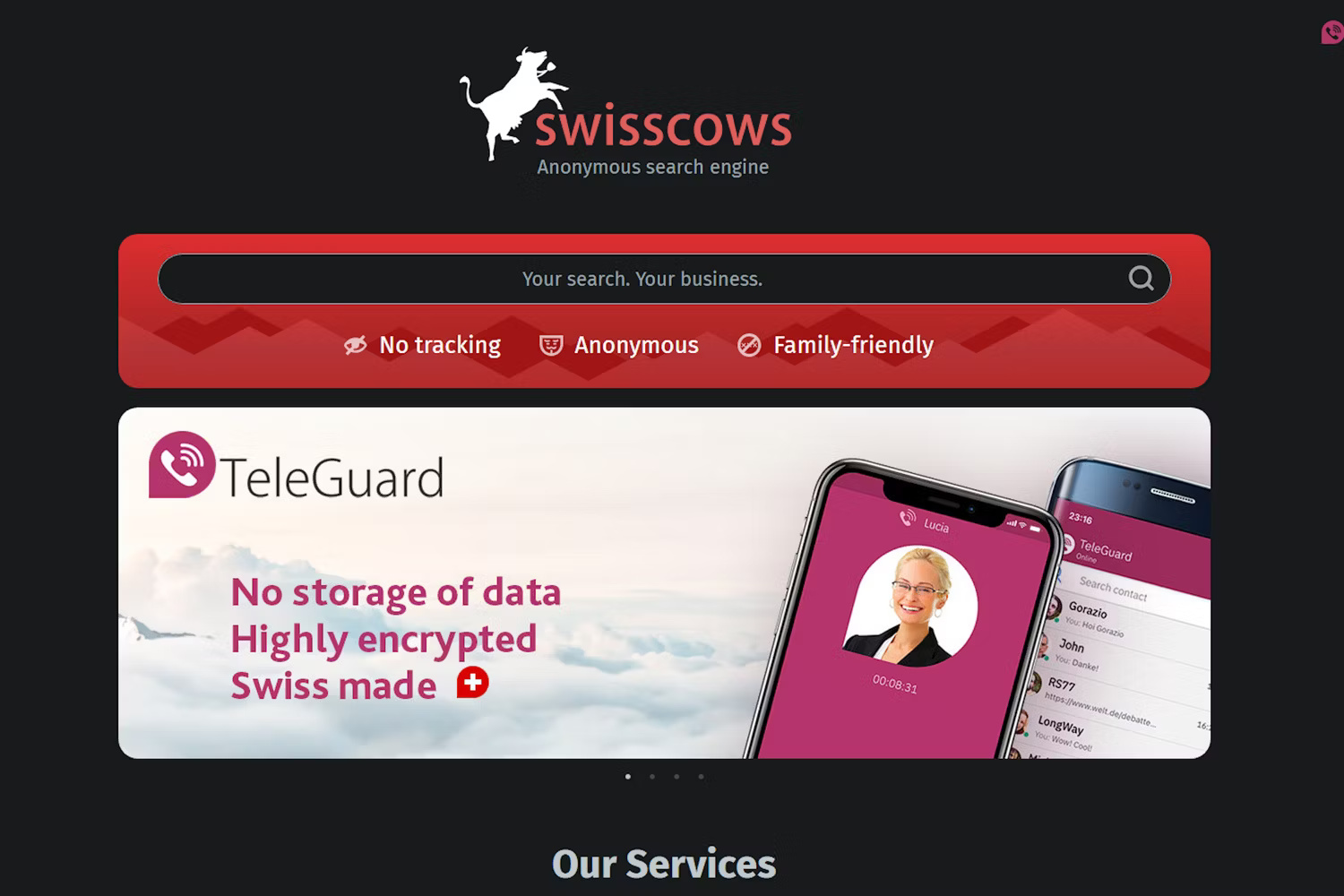
SwissCows is quite serious about privacy. Its owners claim that they have designed the search engine so that it cannot collect personal data about users. It's also designed to be family-friendly, so you don't have to worry about something adult appearing in the results.
To help fund the site, SwissCows displays advertising from Bing, which may not be ideal for some people. However, you can rest assured that SwissCows will not record everything you do while using it.
From monthly paid search engines to services that don't track users, there are plenty of services you can use instead of Google.
You should read it
- How to search from the Search box on the New Tab Chrome
- Private search engines replace Google
- Google improves Search to provide more in-depth results for questions
- How to use iOS's anonymous search feature on Google Search
- Rooted Delta Search on Chrome, Firefox and Explorer browsers
- What is Search volume? Why care about search volume?
 10 super fast ways to 'Show desktop' for Windows
10 super fast ways to 'Show desktop' for Windows Microsoft's official .NET website just crashed worldwide
Microsoft's official .NET website just crashed worldwide How to download Netflix videos to watch offline
How to download Netflix videos to watch offline Microsoft confirms that recent Windows 11 updates cause taskbar errors
Microsoft confirms that recent Windows 11 updates cause taskbar errors Error of lost image file link in How to handle?
Error of lost image file link in How to handle? Remote Desktop Connection: How to set up details, 100% successful access to computers via the Internet
Remote Desktop Connection: How to set up details, 100% successful access to computers via the Internet